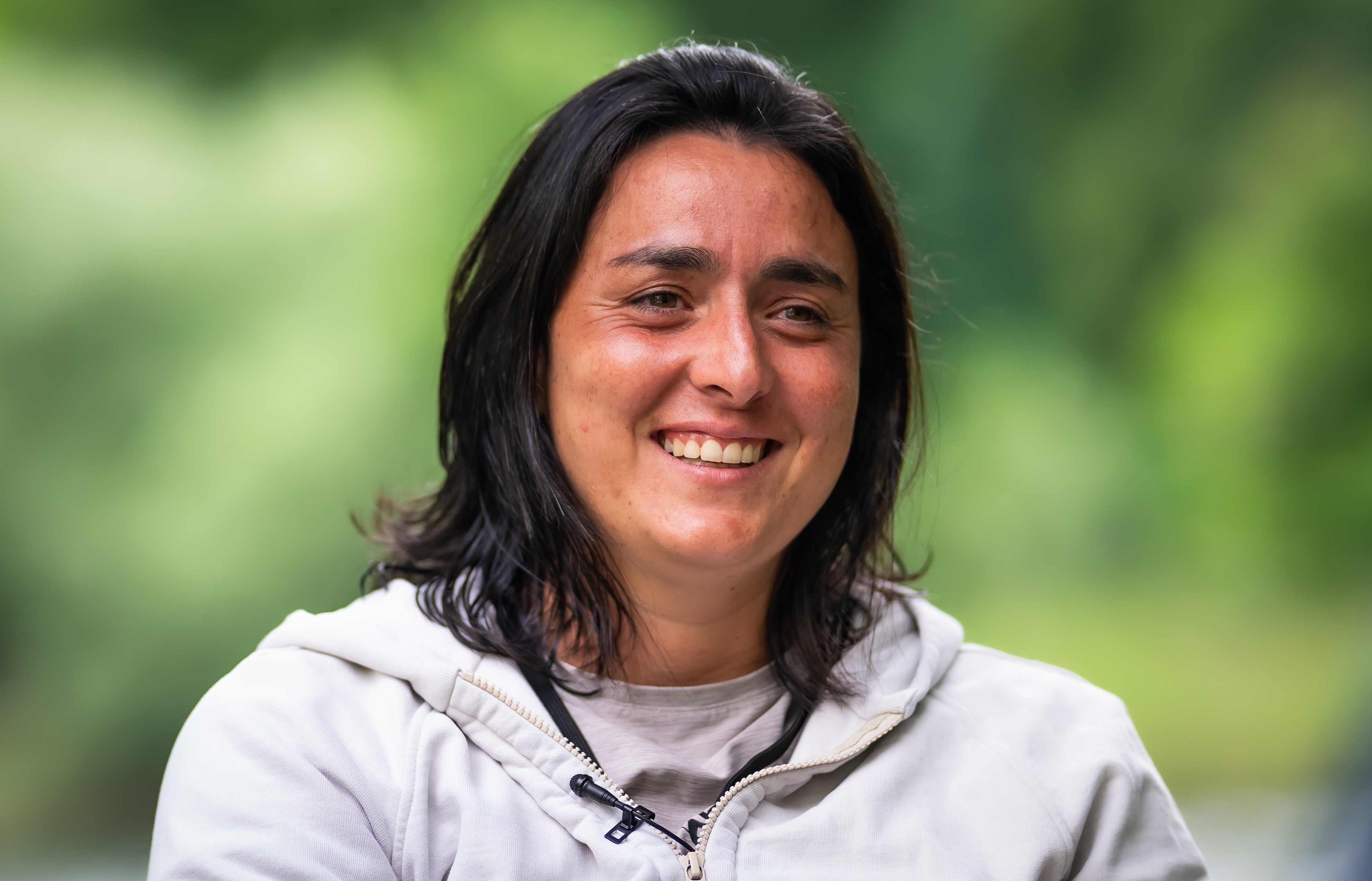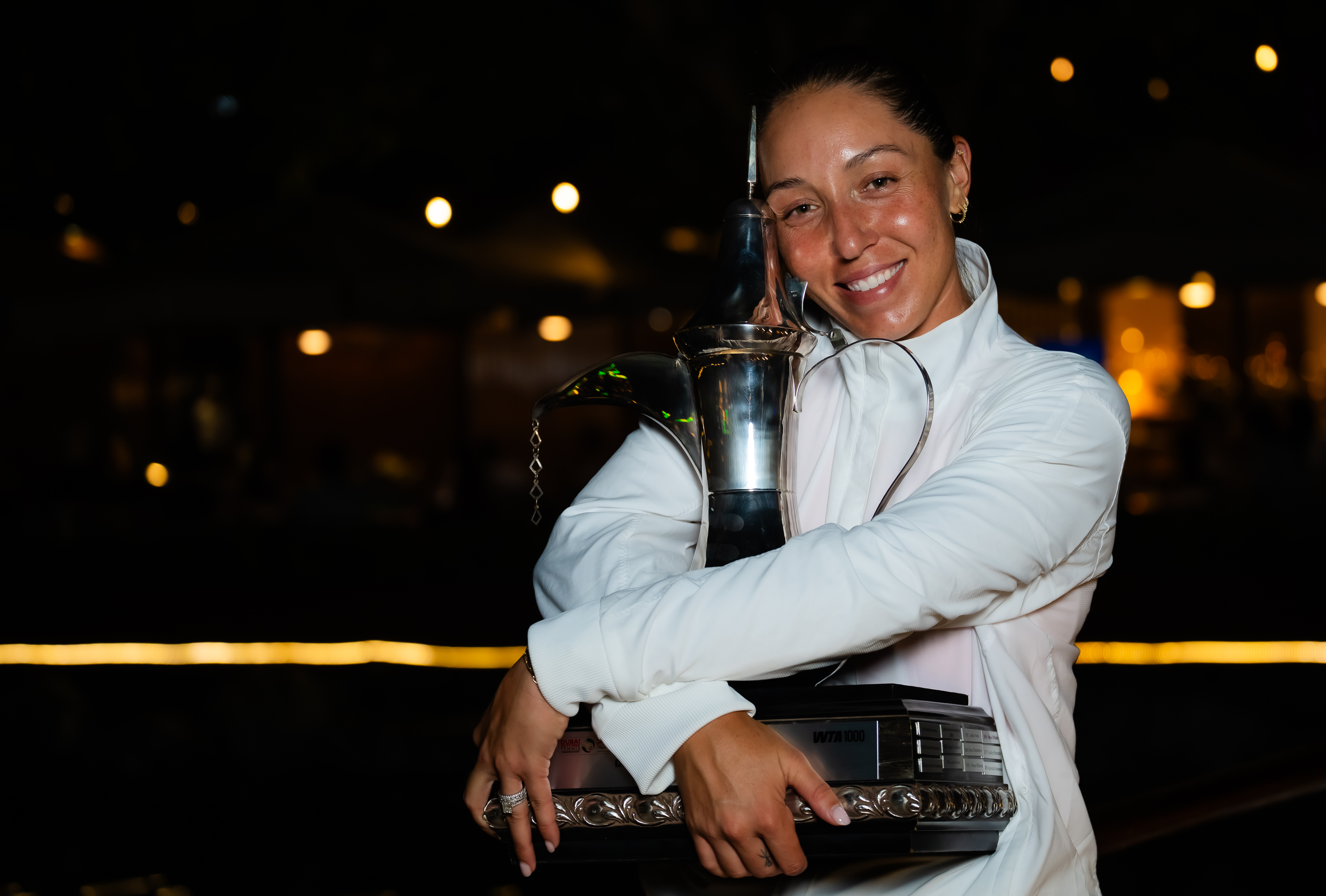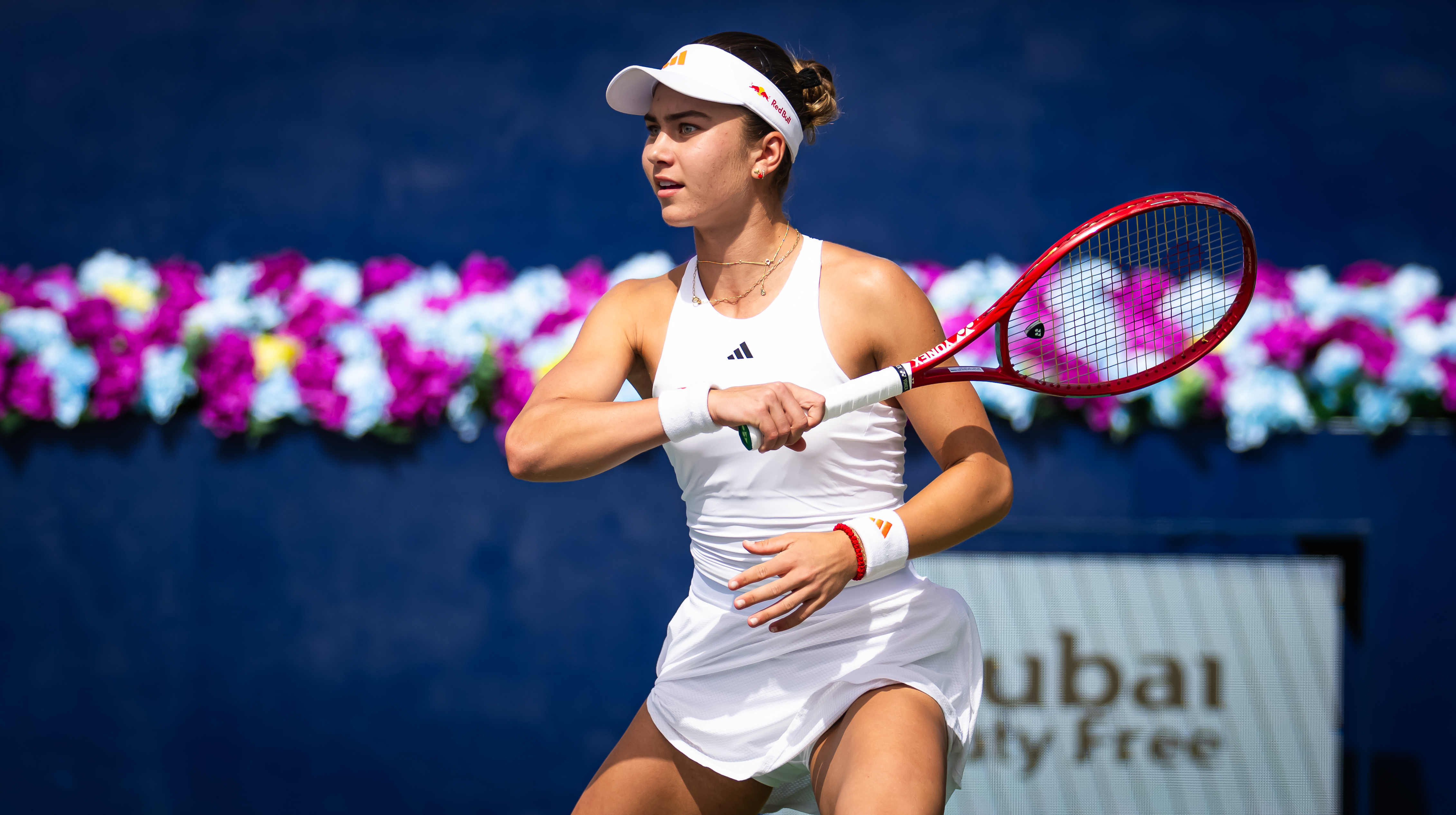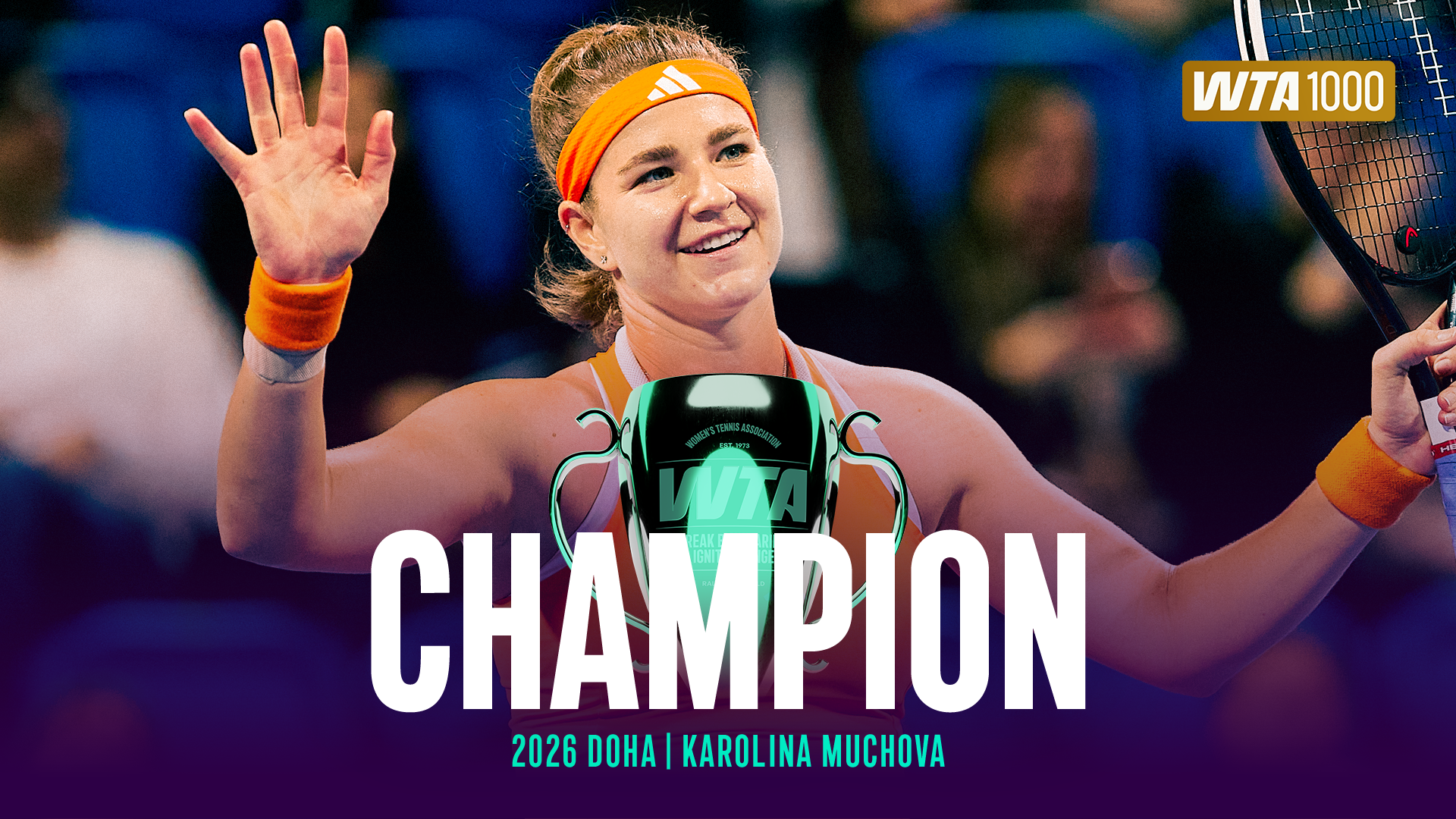Ons Jabeur rediscovers joy in sabbatical’s unexpected turns
Four months into a break from the tour’s grind, Ons Jabeur reveals a pregnancy that extends her hiatus while she pours energy into family, a new foundation, and personal milestones—signaling a thoughtful path back to the baseline with renewed purpose.

In the players’ lounge at the WTA Finals in Riyadh, the steady rhythm of grunts and ball strikes drifts in from nearby practice courts as Ons Jabeur leans back, fielding questions about her return. Four months into this sabbatical, she meets the inquiry with a sly smile, offering no firm timeline but a quiet assurance of her intent to reclaim the court. The air hums with the energy of active sessions, a stark contrast to her own deliberate pause from the baseline.
Navigating injuries and mental shadows
The 2025 season had worn Jabeur down, her record landing at 15-15 after a first-round retirement at Wimbledon against Viktoriya Tomova. A cascade of setbacks—a calf strain in Miami, knee troubles, shoulder pain, and lingering illness—eroded her spark, turning matches into burdens rather than the tactical ballets she once orchestrated. Mentally, the toll deepened; she later shared how far from her best she felt, her body pleading for relief amid the constant demands of adapting to surfaces, from grass’s quick bounces to hard courts’ relentless pace.
Stepping away felt essential, a chance to escape the cycle of training and recovery that left little room for life beyond the lines. She hasn’t touched a racquet in over four months, yet insists her strokes—those fluid inside-out forehands and precise drop shots—remain instinctive, waiting for the right spark. This interlude strips away the stress of impending sessions, allowing her to rediscover motivation through observation rather than obligation.
Welcoming family amid personal adventures
That knowing grin in Riyadh soon unraveled its secret: Jabeur and her husband, Karim Kamoun, are expecting a son next April. She announced the news on Instagram, framing it as the sweetest reset after her break began. “Took a little break to reset and recharge,” she wrote. “Turns out, we’ve been planning the cutest comeback ever. Soon… we’ll be welcoming our tiniest teammate.”
“The court will have to wait a little longer,” the 31-year-old added, her tone blending excitement with the practical deferral of tour duties. Vacations in Türkiye and Tunisia’s pristine beaches offered unhurried escapes, free from the guilt of looming practice. A bucket-list thrill emerged too—she earned her motorcycle license, approaching it with the same measured caution as a well-timed slice backhand, geared up for safety while chasing that cool edge.
“I always wanted to get a motorcycle license, so I did it,” she explained. “I’m not that kind of crazy driver—I want to be safe. I want to learn the right way. I’ve got a helmet, all the gear. Really, I just want to look cool on a motorcycle.” These lighter pursuits echo the patience in her game, where building a one–two punch of serve and crosscourt return sets up decisive down-the-line winners, now applied to life’s broader rhythms.
Foundations and academies shape future returns
Deeper fulfillment came through purpose: in September, she launched the Ons Jabeur Foundation to empower Tunisian youth, shielding them from violence and drugs while bolstering hospitals and schools for fuller childhoods. “The goal is to help give kids from Tunisia a chance to enjoy life, the chance to step away from the violence and the drugs, help them to live their childhood that they were supposed to,” she said. Though modest now, she eyes expansive projects ahead, much like extending a defensive underspin into an aggressive rally.
Her focus sharpens on a new tennis academy in Dubai, slated to open by year’s end, where she’ll oversee the early months to ensure smooth starts. Dubai’s position makes it ideal for nurturing Middle East talent, providing coaches and facilities so young players can hone their craft—drilling inside-in approaches or refining slice volleys—without external pressures. “I want to see more Middle East players on the Tour, so Dubai was the right place to open,” she noted. “Being a role model, all I want is the players to worry about practicing and hitting the ball hard, having the right coach. I want to offer these things so that their minds can be easy.”
As the first Arab and African player to reach three of five Grand Slam finals in her 2022-23 peak, Jabeur draws from that legacy to inspire the next wave, potentially flooding the tour with versatile competitors who transition seamlessly between clay’s grind and grass’s speed. Watching academy kids in action might reignite her own fire, her healed injuries positioning her for a tactical resurgence where psychological ease amplifies her all-court variety.
She joins a lineage of mothers like Naomi Osaka, Elina Svitolina, and Belinda Bencic in balancing family and the game. Bencic’s blueprint impresses—after daughter Bella’s birth in April 2024, she returned six months later via ITF W75s and a WTA 125, surging from No. 487 to No. 11 by season’s close. Jabeur tempers expectations, recognizing each path’s uniqueness. “Everyone is different,” she reflected. “It depends how you recover. I don’t know the experience of giving birth, how it will be. But for me, I will see. If mentally I am ready to come back, anything can happen.”
In Riyadh’s vibrant buzz, with practice echoes fading into the distance, her sabbatical feels less like absence and more like preparation—a recalibration blending family warmth, charitable drive, and adventurous spirit to fuel a return where drop volleys land sharper and inside-out lasers cut deeper, all under the weight of newfound purpose.


